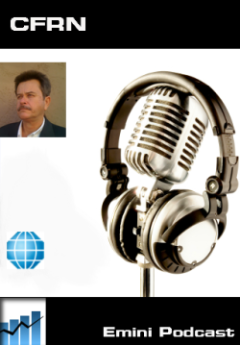How Futures Work
 May 4, 2023 at 6:27 AM
May 4, 2023 at 6:27 AM Futures are financial contracts that allow traders to buy or sell an asset at a predetermined price at a future date. Futures are commonly used in trading stocks, indices, and commodities, and understanding how they work is essential for traders who want to participate in these markets.
In the context of stocks, futures are contracts that allow traders to buy or sell a stock at a predetermined price at a future date. These contracts are traded on futures exchanges, and they are settled in cash rather than the actual stock. Futures contracts on stocks are often used by traders who want to hedge their positions or speculate on the direction of the stock market.
For example, a trader may believe that a particular stock will rise in value in the future. They can buy a futures contract on the stock at a predetermined price, and if the stock does indeed rise in value, the trader can sell the futures contract for a profit. Conversely, if the stock falls in value, the trader can sell the futures contract at a loss.
Futures contracts on indices work in a similar way to futures on stocks, but instead of buying or selling a single stock, traders buy or sell a contract that represents a basket of stocks. For example, the S&P 500 index is a popular index of 500 large-cap stocks in the United States. Traders can buy or sell futures contracts on the S&P 500 index to speculate on the direction of the overall stock market.
In the context of commodities, futures are contracts that allow traders to buy or sell a specific commodity at a predetermined price at a future date. Commodities futures contracts are traded on commodities exchanges, and they are settled in cash or by the physical delivery of the commodity. Futures contracts on commodities are often used by traders who want to hedge their positions or speculate on the direction of the commodity market.
For example, a farmer who grows wheat may want to hedge their position by selling a futures contract on wheat at a predetermined price. If the price of wheat falls, the farmer will have locked in a price for their crop, protecting themselves from a potential loss. Conversely, if the price of wheat rises, the farmer will have missed out on potential profits, but they will have still sold their crop at a predetermined price.
Futures contracts on commodities are also used by speculators who want to profit from the volatility of the commodity markets. For example, a trader may believe that the price of gold will rise in the future. They can buy a futures contract on gold at a predetermined price, and if the price of gold does indeed rise, the trader can sell the futures contract for a profit.
In conclusion, futures are financial contracts that allow traders to buy or sell an asset at a predetermined price at a future date. Futures are commonly used in trading stocks, indices, and commodities, and they are traded on futures exchanges. Understanding how futures work is essential for traders who want to participate in these markets and take advantage of the potential opportunities they offer. Whether you are a novice or experienced trader, futures can be a powerful tool in your trading arsenal.
Take our 1 Week Free Trial and you'll never look at trading the same way again.
To begin the journey and claim your 1 Week Free Trial in our Live Trading Room, visit MyTradingIQ.com. If you use TradingView, we'll enable the Indicators for you on TradingView, and other platforms, for 5 consecutive trading days. You'll have access to the Live Room 2 hours a day, full use of all of our resources, around the clock support, One on One mentoring, and much more.
Read the CFTC Risk Disclosures and CFRN Disclaimers before starting the trial. You can begin the trial any day of the week or weekend. You'll still get 5 consecutive Trading Days.
Questions? Call 949-42-EMINI or Email support@crn.net
 Commodoties,
Commodoties,  Indices,
Indices,  Stocks,
Stocks,  futures
futures 






Reader Comments